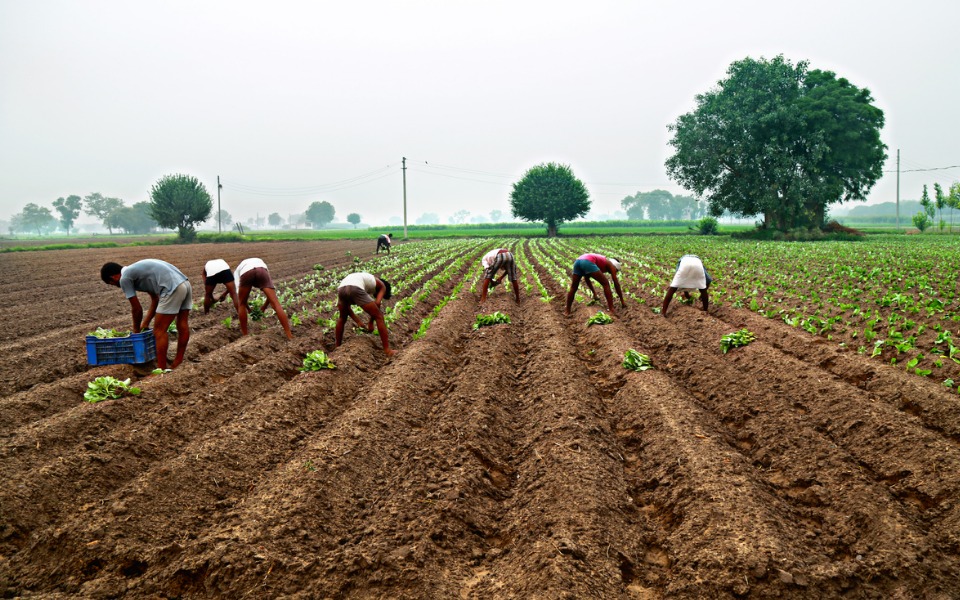
Union Budget: Free trade in agriculture key to bring India’s golden era back

Guiding a nation to transit from one thought process to another is always tricky. The leadership has to deal with legacy issues and find ways to break the mould and inject a new thought. As human beings we are wired to play safe when it comes to breaking new grounds.
Agriculture in India largely faces that dilemma and I would like to describe it as “Social Obligation Syndrome” or SOS wherein masses are programmed to feel obliged towards the person who is entrusted with the task of feeding them.
What’s an SOS syndrome?
This mindset has deep spiritual and cultural roots, that’s why we always thank a person who feeds us. But the problem occurs when the sense of gratitude is extended to the realms of economics affecting relationship between a service provider and the consumer.
The sense of obligation supersedes any kind of hard consideration that is required to make him/her stand on their own feet. In whichever industry rules of economics are applied without any extraneous considerations the sector has done well. This is true even for sectors within agriculture. For instance as compared to standing crops the fruits and vegetables sector has always done well. Animal husbandry is another exception.
The SOS syndrome in my view is by and large applicable to field crops. This is because the politicians in power have an obsession of controlling food inflation which in the past have made or unmade governments.
The term “mehangai” or price rise is a taboo with the political class. Over the years agriculture has come to stay as one sector about which politicians make lots of noise, but the sector itself remains struck morass growing poorly between 2 per cent and 4 per cent of GDP.
Need for bold steps
In the run up the budget many expectations are raised about the sector and one of them is “unleashing its trade potential”. Once India was called ‘sone-ki-chidiya’ or land of bounty where agriculture played a sterling role. So the time is now ripe to unleash the power of Indian agriculture trade —both domestic and global.
If we look at the trade numbers, the performance of fruits and vegetables and other allied agriculture has been far better. Even in the composition of agriculture GVA or gross value added of standing crops is much lower compared to all others.
Interestingly, the intervention in every possible way is also much lower in all other agro commodities barring the standing crop. Also, the challenges are far higher for field crops— be it productivity, price, storage etc. What is required is the ability of farmers to store or trade at will, export when in surplus without the government nod or import as and when required. The standing crops do play a larger role in ensuring nation’s food security, but thankfully today we are well stocked to ward off two good droughts or more.
In order to take the first giant step, the government has both— huge mandate and the required courage to take first bold steps- to free agriculture trade. It should allow the market determine what needs to be grown and what needs to be exported or imported.
In the case of grapes, pomegranate, fresh vegetables etc. the farmers are free to do what they want and we are a leading producer in each of these crops and are doing exceptionally well. We hardly hear of a farmer who is growing fruits and vegetables for exports and is running in distress.
Also read: Union Budget: Economic Survey pegs GDP growth at 7% in FY20
Crop-specific plans
India should set up crop specific trade commissions just as US Soybean Council which keeps promoting soybean word over. US has set up similar commissions to promote California Almonds and Washington Apples.
Today we are the largest producer of several crops, we are also the largest importer of proteins and oils— however this distortion can be removed if we are given the freedom to export. For instance we should be importing pulses the rationale being better prices.
It is also time the policy makers moved away from pampering the consumers with lower inflation allowing the normal market demand and supply factors take over. This will ensure stability in the trade. We have already an example in the form of trade in fruits and vegetables, which despite its short shelf life, has flourished and provided enough incentive for the farmer to keep producing.
Therefore the first step the finance minister should do is free up agriculture trade by removing it from the ambit of ECA or Essential Commodities Act; allow export of commodities without restrictions and facilitate settling up of trade commissions.
We are the only nation producing non-GM or genetically modified crops in the entire eastern hemisphere. We should promote Ragi as the best fortified food to the world, they are the gems of Indian millets and it can be the biggest brand ambassador of Indian crops. Essentially government should just be an enabler.
India has potential to be the world’s largest agriculture exporter and we should aim towards that goal. Today the world does not take India as a serious a player in agriculture trade as it should.
Also read: Union Budget: India needs to spend more to modernise weapons
(The author is a banker turned entrepreneur and founder of Agriculture Risk Management Firm Agri Risk,(hummingbird.in) which is an independent agriculture data entity, that addresses the data asymmetry in Indian agriculture sector by leveraging data science and cutting edge technologies)

